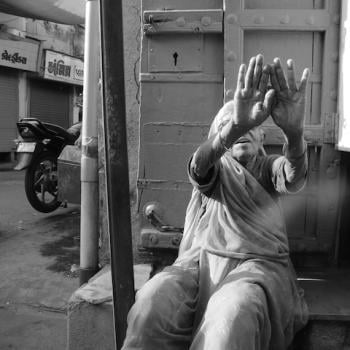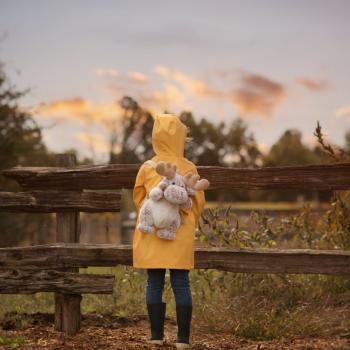
Excerpt from the book Copyright © 2025 by Karl Forehand
What Do I Fear?
“The wise man doesn’t give the right answers, he poses the right questions.” – Claude Levi-Strauss
Having been raised as a Christian, I am well acquainted with the concept of the Christian holy book. The Bible often suggests that we should not give in to fear. As Christians, we observe instances such as the angels communicating with the shepherds and urging them to “Fear not,” along with numerous passages in both the Jewish and Christian Scriptures that encourage us to resist fear.
We recognized that eliminating fear or the need for caution isn’t realistic. Living completely without fear could pose risks for both us and others. While we understand the difference between reasonable and unreasonable fears, many Christians became somewhat fixated on their anxieties, trying to erase those fears from the world. This fixation was further fueled by an authoritative figure on stage who reminded us weekly of what we should fear.
Where do we learn what we should be afraid of?
Often, our fears are shaped by our families of origin. They warn us about dangers, like a hot stove, which also leads us to trust their judgments in other areas. I eventually wondered, “Do they truly understand the subjects they caution me about, or are they simply fearful due to their lack of knowledge?” The people around us often share information from similar individuals, and their sources may not be reliable or credible.
My maternal grandparents were good people, but a small Baptist church, which was a significant influence in their remote area, largely shaped their worldview. Like many other churches, when they encounter information that they disagree with, they dismiss that person and seek someone else to provide the information they prefer. Religion often distances us from societal norms and promotes unique narratives. Preachers, politicians, and salespeople know that fear makes us vulnerable to their solutions.
While we cherish our parents and grandparents, we must reflect on the origins of their insights and any gaps in their knowledge. We can appreciate the valuable lessons they provide while recognizing that their perspectives may be shaped by their environments and social circles. They may not always have the most accurate information and often share what they’ve heard without thoroughly researching or verifying it through multiple sources.
Before we follow someone blindly, such as a pastor, we should recognize their limitations in understanding. They are likely just conveying what has been communicated to them. Questions and challenges to their beliefs have often been dismissed, causing them to share the same information, regardless of its truth, logic, or practicality. Theology and much of our folk wisdom stem from assumptions shaped by a narrow perspective. Explore Plato’s Allegory of the Cave for deeper insight into this concept.
Most things we worry about never happen.
As I mentioned earlier, some concerns can lead to fear. However, many of these fears are unfounded. I take specific steps to secure my home against intruders; considering our location, I have little reason to be afraid. I could easily spend all my waking hours and sleepless nights worrying about potential threats.
Now, after 60 years of experience, I reflect on my past. I find myself less impressed by the precautions I took out of fear, whether those fears were real or imagined, and more impressed by the moments I dared to explore on my own. This led me to try skydiving, learn about hunting, and confront some of the fears my father may have instilled in me. I stopped following authority figures blindly, realizing that holding power doesn’t necessarily mean having wisdom.
You may have noticed a societal shift toward a more mystical approach to spirituality. Mystics draw their insights from personal experiences rather than merely repeating beliefs handed down to them (theology). Unlike theologians, who seek to validate historical assumptions, mystics do not attempt to reinterpret old ideas to draw audiences to their next event.
We must emerge from the cave, view the world through new perspectives, and ask genuine questions instead of simply echoing the fears of our past.
How religion uses fear to control
Despite the numerous Protestant denominations within Christianity, each offering its unique perspective, we often face admonitions when questioning their teachings or exploring our own paths. They assert, “You will never find safety outside our community!” They claim to hold the ultimate truth, insisting that God supports their views while warning us that ignoring their guidance would be unwise. However, many pastors are beginning to realize that they have invested too much energy in nurturing our fears to sustain doctrines and beliefs that, in many cases, were merely assumptions.
Religious followers often live in deep fear of being outside the protection of their belief system. They receive constant reminders to be afraid, especially of things they do not understand or have not experienced. Therefore, if you are brave enough to challenge the organization’s assumptions, be prepared for fear-driven warnings from the faithful.
There’s also the implication, “You experience hardship if you don’t conform.” The organization, the pastor’s salary, and their concepts of well-being rest on assumptions that must be defended at all costs. Acknowledging mistakes or the possibility of unknown information can jeopardize the entire system. Driven by a fear of organizational collapse, they want you to feel that being disconnected from their assumptions and failing to defend them puts you at risk.
They warn, “You will not find community.” This warning profoundly impacts us due to our deep need for connection. Most spiritual practices emphasize large group interactions over solitude and stillness, creating a superficial sense of community that only partially fulfills us. Time and again, we demonstrate that smaller groups foster deeper intimacy, while organized religion often prioritizes the organization’s goals over individual needs for connection.
My previous denomination warned me, “You will expose yourself to the Devil” whenever I questioned the church’s doctrines or stopped attending services. They treated it like a contagious virus I might catch once I stepped outside their shield. My spiritual journey advanced significantly when I realized that the church had never truly protected me.
The church promised to protect me, yet when I faced genuine emotional struggles, they failed to understand and were reluctant to take the time to support my recovery. My grief seemed unimportant to them, and their commitment to addressing trauma-related issues was minimal. After two decades of observing their practices, I ultimately recognized that their focus was not on my protection but on preserving their organization’s longevity and the careers of their ministry personnel.
I no longer fear a being I don’t believe in. As I began to think independently and trust my experiences and intuition, I realized that concepts like hell and the devil were merely assumptions that fed the fear, keeping me trapped in religion.
Responses to challenges against Christianity often assert, “You won’t know how to live without us.” I used to challenge others by asking, “If you don’t trust the Bible, where will your truth come from?” However, in recent years, I’ve realized that wisdom and truth are not limited to a group with shared worldviews. Instead, they often arise when we step outside our comfort zones, acknowledging that wisdom can be found in various sources, such as nature, the universe, mindfulness, and personal experiences.
Since I’ve reduced my Bible reading, I feel I’ve become a better person. The text often contradicts itself and falls short as a life guide, regardless of its assigned labels. While it contains some valuable insights, considering it the sole source of universal wisdom requires much effort.
The preachers I once respected were exceptionally skilled at conveying the notion that “The world is against you.” This message resonated with my congregations, who often preferred escaping reality by immersing themselves in an artificial community. However, we might discover the opposite if we step back and view the universe more objectively. Some may even argue that the world, or the universe, actually supports our progress.
When we move beyond narrow religious beliefs, we don’t endanger ourselves; instead, we open the door to connect with our world and experience more of what we desire. If God exists, perhaps this is what was meant by “Fear not,” and maybe we will understand the intent of the Divine when we move away from fear-based systems.
Questions About Questions
What belief(s) did you inherit concerning this question?
How is your response to this question changing?
Learn to be Where You Are (Presence)
Learn to be Who You Are (Authenticity)
Finding Regulating and Somatic Healing
Are you genuinely committed to deconstruction and seeking more profound answers?
If that’s the case, this book was created for you. As a former pastor, I made the mistake of deconstructing a bit and then trying to start something new, as I was trained to do. The problem with that approach is that I wasn’t ready to begin something new.

I hadn’t delved deeply enough or asked enough questions. The first stage of deconstruction typically includes assessing our beliefs regarding hell and the afterlife, supporting queer individuals and women in their fight for equality, and achieving a better understanding of racism and privilege.
Many people in deconstruction communities expend significant effort criticizing Evangelicals and attempting to gain a following. While I believe they deserve intense criticism, this strategy fails to effectively tackle the problem because they generally don’t listen to us!
Our tendency to punish our former organizations sometimes overlooks the challenging process of healing and growth. It is the same trap we fell into in our former associations.

Campfires occupy a special spot in the mosaic of history. They act as communal hubs across different cultures and faiths. The campfire’s circular design fosters equal participation within the collective group. The flames at the center draw our focus and encourage face-to-face interactions as we exchange experiences, wisdom, and insights about the world beyond. It is where legendary myths and tales are born.
Order Now – Study Questions in each chapter!
This book is named Campfires in the Desert as it stems from nearly 400 discussions we held with individuals on our podcast, The Desert Sanctuary, and our aspiration to improve.
Available now!
Thanks for considering us, autographed copies are $20
Karl Forehand Campfires in the Desert – A Soft Book Release. Karl Forehand is a former pastor, podcaster, and award-winning author. His books include Out into the Desert, Leaning Forward, Apparent Faith: What Fatherhood Taught Me About the Father’s Heart, The Tea Shop, and Being: A Journey Toward Presence and Authenticity. He is the creator of The Desert Sanctuary podcast and community. He has been married to his wife Laura for 35 years and has one dog named Winston. His three children are grown and are beginning to multiply! You can read more about the author here.














